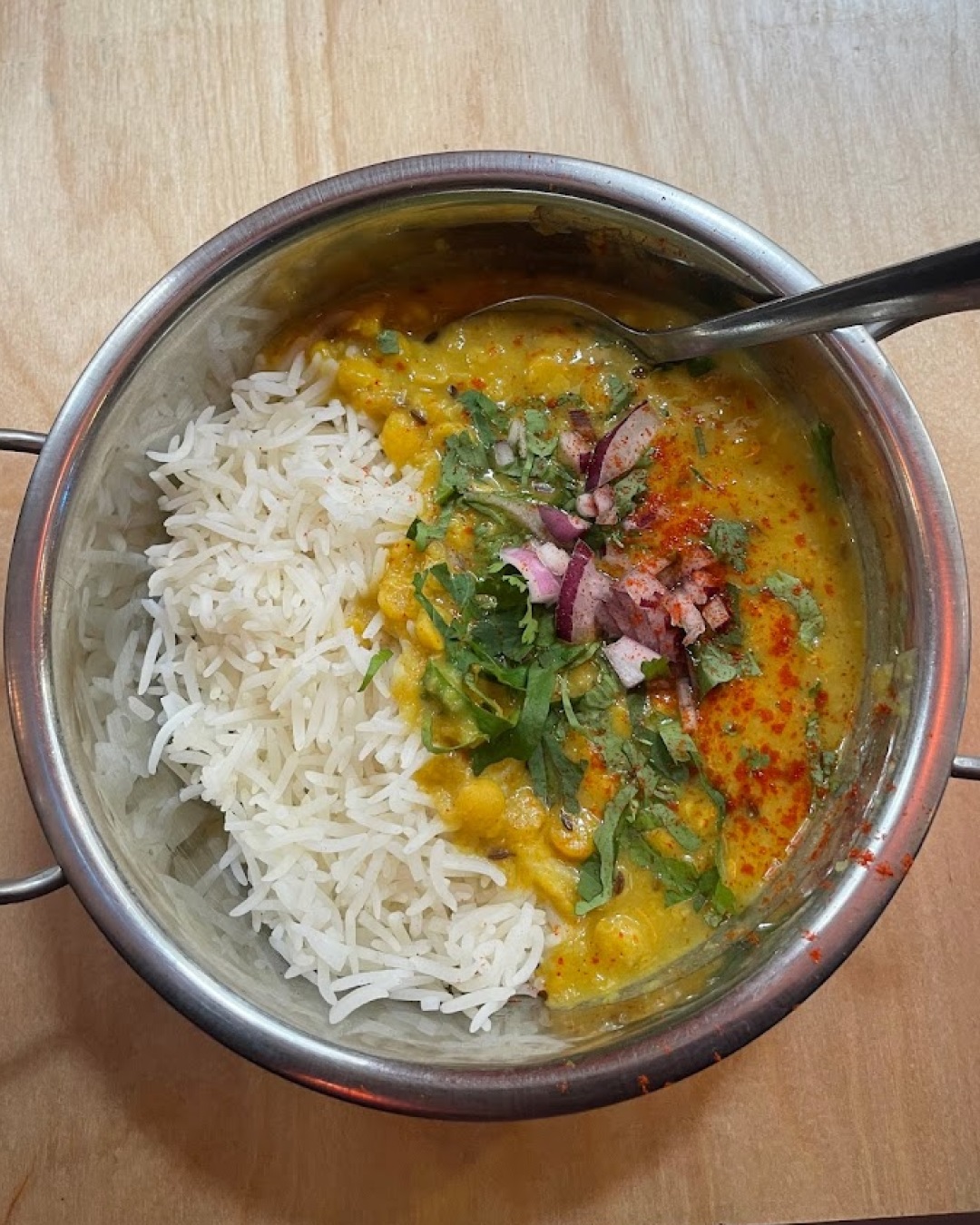


The small village of Bihiain in Bihar has upheld a unique tradition of strict vegetarianism for over 300 years. Inspired by their devotion to the deity Brahma Baba, the community abstains not just from meat but also alcohol, onions, and garlic. Despite some subtle changes in younger generations, the village remains committed to its cultural practices. Bihiain not only represents unity and collective discipline but also draws the attention of researchers and cultural enthusiasts.
The Enigmatic Vegetarian Village of Bihiain: A Testament to Tradition
Nestled amidst the fertile plains of Bihar, India, lies the small village of Bihiain, renowned for its unique tradition of strict vegetarianism that has endured for over 300 years.
Origins and Beliefs
The village's unwavering adherence to vegetarianism stems from its deep devotion to the deity Brahma Baba. According to local legend, Brahma Baba appeared to the villagers in a dream and instructed them to abstain from meat, alcohol, onions, and garlic. Inspired by this divine encounter, the community embraced a life of purity and non-violence.
Contemporary Practices
Despite the passage of time, Bihiain remains steadfast in its commitment to vegetarianism. The villagers believe that consuming meat disrespects the sanctity of all living beings. They also refrain from using any form of alcohol, as it is considered an intoxicant that impairs their spiritual connection with Brahma Baba.
However, subtle changes have occurred in recent generations. Some younger villagers have begun to incorporate certain non-vegetarian foods into their diets. Nonetheless, the core principles of vegetarianism remain deeply ingrained in the community.
Impact on Culture and Society
Bihiain's unique tradition has fostered a sense of unity and collective discipline. The villagers take pride in their cultural practices and are eager to share their beliefs with visitors. The village has also attracted the attention of researchers and cultural enthusiasts who recognize the importance of preserving such traditions.
Top 5 FAQs and Answers
1. When and why did Bihiain adopt vegetarianism? Answer: Over 300 years ago, after a divine revelation from Brahma Baba instructing them to abstain from meat, alcohol, onions, and garlic.
2. Are all villagers strictly vegetarian? Answer: While the community remains predominantly vegetarian, some younger generations have begun to incorporate non-vegetarian foods into their diets.
3. What are the benefits of Bihiain's vegetarian tradition? Answer: The villagers believe it promotes purity, non-violence, and a stronger spiritual connection.
4. How has the tradition evolved over time? Answer: While the core principles remain intact, some subtle changes have occurred, such as the introduction of certain non-vegetarian foods among younger generations.
5. What is the cultural significance of Bihiain's vegetarianism? Answer: It represents a testament to the enduring power of tradition, fostering unity, discipline, and a fascination among researchers and enthusiasts.

Good Friday 2024, happening two days before Easter Sunday, marks a significant day for Christians worldwide as it commemorates the crucifixion and death of Jesus Christ. It is a time for solemn reflection and contemplation as believers remember the ultimate sacrifice made for them. This year, Good Friday falls on March 29, and will be observed by Christians in various ways, including special services and prayers.

Vantara, a wildlife rescue and rehabilitation initiative by Reliance Foundation, has been cleared of all allegations of wrongdoings by the Supreme Court-appointed SIT. This validation of their work has given them the strength to continue their mission of serving voiceless animals with love and compassion. Vantara also expresses their gratitude and solidarity with the government and all stakeholders involved in animal care.

On November 16th, India commemorates National Press Day to acknowledge the vital role of the media in shaping the nation's democratic framework. As the Fourth Pillar of Democracy, the press serves as both a chronicler of truth and a watchdog that keeps those in power accountable. However, the day also serves as a reminder of the ongoing obstacles and challenges that threaten press freedom, including misinformation and censorship attempts. As we celebrate India's rich press history and honor journalists who bravely bring truth to the public, it is also an opportunity for reflection on the responsibility of the media and the need for independent journalism in a rapidly evolving digital landscape.

Rohini Acharya, the daughter of RJD party president Lalu Prasad, shocked everyone with her recent decision to quit politics and disown her family. In her cryptic post on X handle, she reveals that it was Sanjay Yadav and Rameez who convinced her to do so. Sanjay Yadav, a trusted aide of Tejashwi Yadav, and Rameez, an old friend of Tejashwi's, are believed to be the ones who influenced her decision. With the RJD's seat tally slipping to 24 from 75 in the recent Bihar assembly polls, many speculate that Rohini's decision may be linked to the expulsion of Tej Pratap Yadav from the party. However, details about her background and the story behind her name add more context and depth to the shocking news.

A four-year-old girl, who was kidnapped from Mumbai's Chhatrapati Shivaji Maharaj Terminus six months ago, has been reunited with her parents after being traced to a Varanasi orphanage. After an extensive six-month long search, the police were finally able to rescue the girl and bring her back to her family in Mumbai. The breakthrough came when a local journalist contacted the Mumbai police after spotting the missing child's poster. This heartwarming reunion highlights the importance of collaborative efforts and the power of media in solving such cases.

The AIMA MAT CBT mode exam 2025 admit card will be available for download today, September 25, 2025, on the official website. Candidates appearing for the exam on September 28 will be able to download their admit card through the link provided. The admit card is mandatory and can be downloaded by logging in with the registration number and password on the official website. Here's how to download the MAT CBT admit card 2025.

A recent study has found that six Indian states consistently have the cleanest air due to their geographical and environmental factors. With Delhi's air quality reaching "severe" levels, these states provide a welcome respite from pollution. Experts believe that nature and low population density are key contributors to their clean air. Follow us on Instagram for more updates on environmental issues across India.

The festival of Prathamastami in Odisha honors the eldest child in a deeply meaningful way, emphasizing blessings, responsibility, and family traditions. With roots in both agriculture and Hindu worship, the day involves key rituals such as worship of Hindu gods and goddesses, offerings to the eldest child, and blessings from elders. The day also holds a special role for the maternal uncle, who presents gifts and support to the child. Overall, Prathamastami is a day for families to express gratitude for their children and the continuity of their values.

Rohini Patil's journey from a small village in Maharashtra's Satara district to managing over 100 bee boxes showcases the transformative potential of beekeeping in rural livelihoods and women empowerment. From being captivated by a small newspaper ad to earning Rs 25 lakh a year from her organic honey venture, Rohini's determination and curiosity have propelled her to success. Through beekeeping, she has found a way to not only support herself but also preserve nature and empower her community, one bee box at a time.

Today's Panchang for November 12, 2025 brings together an auspicious combination of Ashtami Tithi and Ashresha Nakshatra, promoting balanced thinking, strategic planning, and emotional stability. With Brahma Yoga in the morning and favorable Muhurta for business dealings, it is an opportune time for starting new projects and making important decisions. However, the astrological forecast also warns to avoid Rahukaal and Yamaganda for new beginnings.